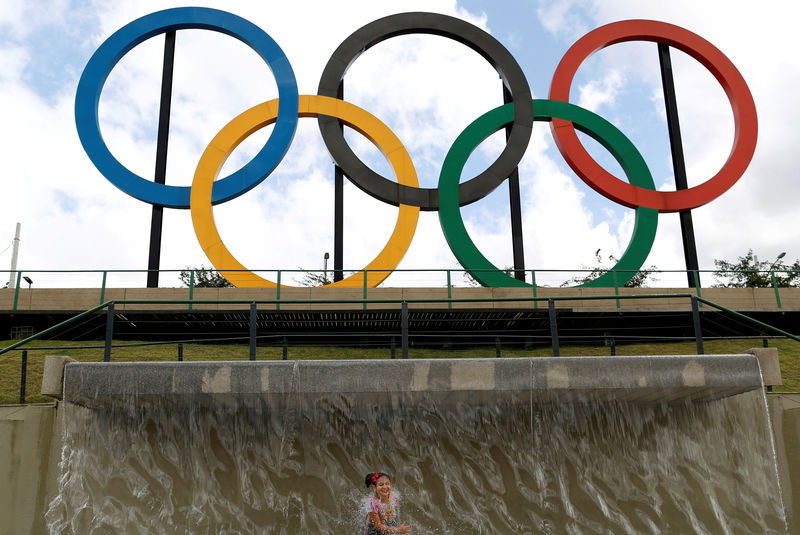By Karolos Grohmann
LAUSANNE, Switzerland, (Reuters) - Changes in Germany to the Olympic rule that restricted sponsorship opportunities for athletes during a Games are not a "one-size-fits-all" decision for all countries, Canadian Olympic Committee President Tricia Smith said on Wednesday.
In February German athletes and their sponsors scored a major victory over the International Olympic Committee, earning more possibilities to advertise during the Tokyo 2020 Games and raising alarm bells within the Olympic body.
The German Cartel Office ruled the IOC and the German Olympic Sports Confederation (DOSB) were subject to existing competition laws and would need to grant more rights for promotional activities ahead of and during the Games.
While this decision sets a European precedent, it is not legally binding in other parts of the world.
"We had discussions with our athletes' commission," Smith, a lawyer, told Reuters in an interview on the sidelines of an IOC session.
"It may not be one-size fits-all. I don't think it is, Certainly not in the changing landscape of this issue.
"The changes that will be proposed to rule 40 by the IOC will accommodate a lot of athletes' wishes and allow them to continue their affiliation with long-term sponsors. I think it is a reasonable approach," Smith said,
Rule 40 of the Olympic Charter states "no competitor, team official or other team personnel who participates in the Olympic Games may allow his person, name, picture or sports performances to be used for advertising purposes during the Olympic Games".
It is seen as major advantage for Olympic sponsors, who sign up because until now they had exclusive exposure rights during the Games in all Olympic venues and areas. The German decision changes that for German athletes.
As a result the IOC has urged national Olympic committees to discuss the matter with athletes. It is not clear if and when the IOC will propose changes to Rule 40.
"The funding the IOC gets really funds the sports movement in the world. You have to make sure that is protected. The IOC puts 90 percent of their money back into sports," Smith said.
"We have to be careful to protect that solidarity and the feedback I got from our athletes is they definitely recognize that."
A four-time Olympian in rowing and a silver medalist at the Los Angeles 1984 Games, Smith is one of only a handful of women in charge of a national Olympic committee (NOC). In total, there are 206 NOCs.
"I have been in the sports system a very long time. I have been part of change and I have seen the change," she said.
"Sport is one of the most powerful platforms to promote women and girls, to empower women. But there's lot of work yet to do.

"I have seen the value that diversity brings to a board. Boards making decisions are stronger when they have those diverse perspectives on them."